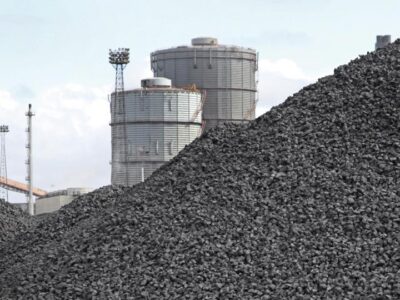Energy
Talking Climate Policy with an Energy Economist
An interview with leading energy expert Catherine Wolfram
Catherine Wolfram, a leading energy economist who has researched the impact of the Inflation Reduction Act, shares her views of the impact of the IRA, its likely fate, and the energy policies of the incoming Trump Administration. Wolfram served as the Deputy Assistant Secretary for Climate and Energy Economics at the US Treasury in 2021-2022
CONTINUE READINGGovernment by Reconciliation
The reconciliation process avoids the risk of a Senate filibuster. But it comes wth procedural and political complications.
The GOP’s efforts to accomplish a big agenda through the reconciliation process will face serious complications. The Byrd rule limits the use of reconciliation to achieve non-budgetary purposes. A razor-thin House majority and factional warfare will make it hard to reach deals, as will Trump’s (& Musk;s) distaste for compromise.
CONTINUE READINGTrading more LNG exports for more electricity transmission?
Recent Department of Energy report indicates that the trade may be worth it
In a series of recent posts (first post, second post, third post), I examined the permitting reform bill advanced by Senators Manchin and Barrasso in the last Congress. That permitting reform bill is now dead. But the reasons for doing a deal still remain. Decarbonizing the US economy requires a massive increase in renewable energy, …
Continue reading “Trading more LNG exports for more electricity transmission?”
CONTINUE READINGTesla’s Trajectory
What do recent developments teach us about the world?
Recent news about Tesla sheds light on the company’s future, the global EV market, crony capitalism, not to mention the state of American democracy. It may also say something about Elon Musk’s role in the company. That’s a lot of information wrapped up in Tesla’s stock prices and related developments. Overall, this is good news for the environment but bad news for democracy.
CONTINUE READINGTest Your Knowledge of Climate Law
How much do you really know about the law relating to climate change?
How much do you really know about climate law? Expert or novice, this quiz will test your knowledge and maybe help you fill in some gaps.
CONTINUE READINGThere are Piles of Coal in America’s Christmas Stocking
Coal is piling up, unused, at powerplants across the country
Bad children, supposedly, will get only lumps of coal in their stockings. That could be taken as a metaphor for the anti-environmental programs coming down the line, but I have in mind something a bit less metaphorical. According to a recent report, coal-fired power plants have immense piles of coal – 138 million tons, equal …
Continue reading “There are Piles of Coal in America’s Christmas Stocking”
CONTINUE READINGWhat Is A “Sustainable Battery”?
CLEE’s Global Forum for Sustainable Batteries releases a 2040 Sustainable Battery Vision
As the market for the electric buses, cars, trucks, and trains that help curb the climate crisis continues to grow globally, the battery supply chain faces increased scrutiny. Minerals like lithium, nickel, graphite, and cobalt are too often mined and processed in ways that contribute to harming communities and ecosystems, while the batteries often face …
Continue reading “What Is A “Sustainable Battery”?”
CONTINUE READINGTrump & Environmental Policy: The Sequel, Part II
Expect a lot of the same, but there could be some new twists.
Trump’s basic thrust is to eliminate environmental protection, just as he tried to do in his first term. But there are some new factors — new faces like Kennedy and Musk, and new developments like the massive investments sparked by Biden’s Inflation Reduction Act. Both Trump and the resistance will be better organized. In one way, you could think of this as a fascinating social experiment — but one with potentially devastating consequences for public health, climate change, and the future of the planet.
CONTINUE READINGShould We Do Permitting Reform?
What is at stake with the Manchin bill.
As Congress wraps up its lame duck session before the new Congress and President arrive in January, there is a lot of debate about whether to move forward on permitting reform within a quickly shrinking window of time. The basis of debate is the Energy Permitting Reform Act (EPRA) co-sponsored by Senators Manchin and Barrasso. …
Continue reading “Should We Do Permitting Reform?”
CONTINUE READINGTrump & Environmental Policy: The Sequel, Part I
Expect a lot of the same, but there could be some new twists.
They say that history never repeats itself, but it often rhymes. As in many sequels, there will be many things we’ve seen before. Much of that consisted in an all-out attack on environmental law. If you hated the original, you won’t enjoy watching the same thing the second time around. This will include massive regulatory rollbacks and expansion of fossil fuels regardless of environmental harms.
CONTINUE READING








